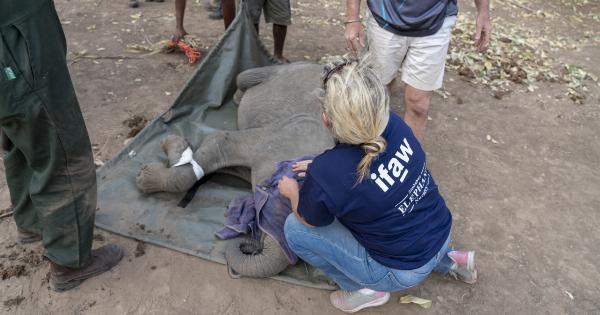Living with hemophilia can be challenging, but thanks to organizations like the Hellenic Hemophilic Protection Association (HHPA), individuals and families affected by this genetic bleeding disorder have access to valuable resources and support.
In this article, we will explore the various resources provided by the HHPA and how they contribute to the well-being of the hemophilia community.
Understanding Hemophilia
Hemophilia is a rare genetic disorder that affects the body’s ability to properly form blood clots, resulting in prolonged bleeding. It is primarily caused by a deficiency or absence of certain clotting factors in the blood.
There are multiple types of hemophilia, with the most common being Hemophilia A (caused by a deficiency of factor VIII) and Hemophilia B (caused by a deficiency of factor IX).
HHPA: A Lifeline for the Hemophilia Community
The Hellenic Hemophilic Protection Association (HHPA) is a non-profit organization based in Greece that aims to improve the quality of life of people with hemophilia and other bleeding disorders.
They provide a wide range of resources and services to support individuals, families, and medical professionals in managing this condition.
1. Education and Information
One of the primary functions of the HHPA is to educate and inform the hemophilia community. They offer comprehensive educational materials and resources about hemophilia, including brochures, booklets, and online content.
These resources cover various aspects of the disorder, such as its causes, symptoms, treatment options, and lifestyle management.
2. Medical Consultation
The HHPA provides access to medical experts who specialize in hemophilia.
They offer consultations to individuals with hemophilia and their families, helping them understand the condition better, discuss treatment options, and address any concerns or questions they may have. This service is invaluable in ensuring that individuals receive personalized and accurate information regarding their specific needs.
3. Financial Assistance
Hemophilia treatment can be financially burdensome, especially for individuals who require regular blood transfusions or expensive clotting factor medications.
The HHPA assists with connecting individuals to available financial resources and support programs, such as government subsidies, insurance coverage, and grants. This financial assistance helps alleviate the financial strain of managing hemophilia and ensures that individuals can access the necessary treatment without added stress.
4. Psychosocial Support
Living with a chronic condition like hemophilia can have significant psychosocial impacts. The HHPA recognizes the importance of addressing these aspects of well-being and provides psychosocial support services.
They organize support groups, counseling sessions, and workshops to help individuals and families cope with the emotional challenges associated with hemophilia. This support network fosters a sense of community and understanding among those affected by the disorder.
5. Advocacy and Awareness
The HHPA actively advocates for the rights and needs of individuals with hemophilia.
They work closely with policymakers, healthcare professionals, and other stakeholders to raise awareness about hemophilia and promote policies that improve the quality of care and support available. By advocating for the hemophilia community, the HHPA strives to create a more inclusive and supportive environment.
6. Youth Development Programs
The HHPA recognizes the unique challenges faced by children and young adults with hemophilia.
They organize youth development programs, including educational camps, recreational activities, and workshops specifically catered to young individuals affected by the disorder. These programs not only provide valuable knowledge and skills but also help foster a sense of empowerment and independence among the younger hemophilia community.
7. Research and Innovation
With the aim of improving hemophilia care and treatment, the HHPA actively supports and promotes research initiatives.
They collaborate with medical institutions, researchers, and pharmaceutical companies to advance scientific knowledge and develop innovative therapies. Through their research efforts, the HHPA contributes to ongoing advancements in the field of hemophilia.
8. Collaboration with Healthcare Professionals
The HHPA works closely with healthcare professionals to ensure that the best possible care and treatment options are available to individuals with hemophilia.
They organize training sessions, conferences, and workshops for healthcare providers to enhance their understanding of hemophilia and its management. This collaboration between the HHPA and medical professionals leads to improved patient care and better outcomes.
9. Emergency Response and Preparedness
Hemophilia emergencies can occur, and it is vital to be prepared. The HHPA provides guidance and resources on emergency preparedness, including information on how to handle bleeding episodes and when to seek immediate medical attention.
By equipping individuals and families with the knowledge to respond effectively to emergencies, the HHPA ensures the well-being and safety of the hemophilia community.
10. Rehabilitation Support
Rehabilitation plays a crucial role in enhancing the overall quality of life for individuals with hemophilia. The HHPA offers rehabilitation support services, such as physiotherapy, occupational therapy, and specialized exercise programs.
These services aid in managing joint health, improving mobility, and preventing complications associated with hemophilia.





























